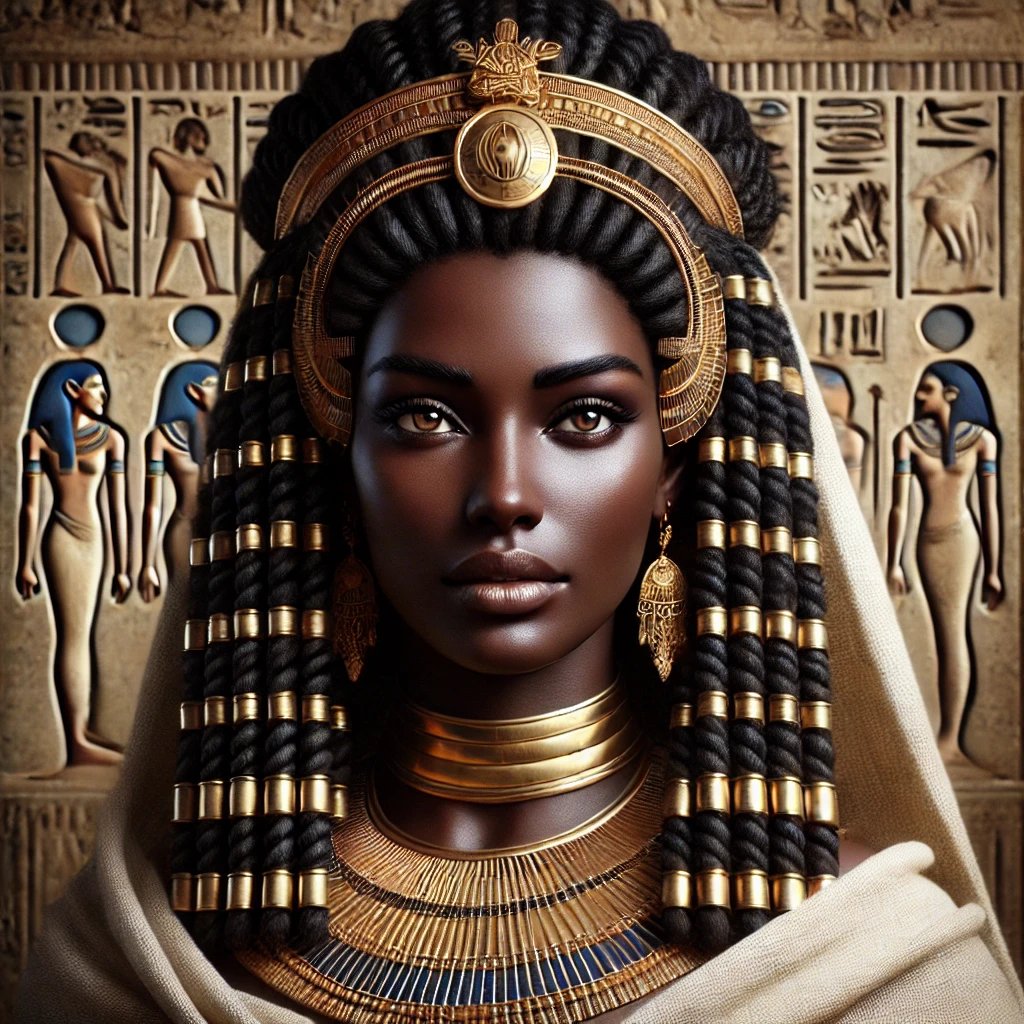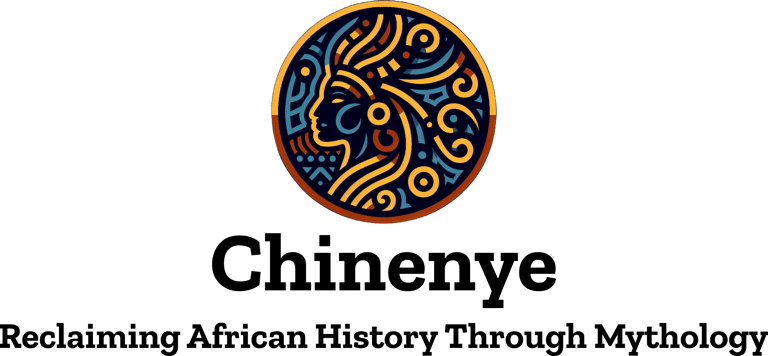The Pharaohs Were as Black as Me
The Pharaohs were as Black as me . The Pharaohs were as African as I am. Kemet was a Black governance, astronomy, and law. TKemet proves that Africa built systems: justice, time, and memory. Is this all news to you? This is for those decolonising the curriculum and reclaiming their legacy.
THE CODEX OF NILE TIME
Chinenye Egbuna Ikwuemesi
7/20/20253 min read


What Happens When You Realise Africa Was Interrupted, Not Absent or ' Lesser'?
There is a quiet violence in being raised to revere a civilisation that looks nothing like you. The pyramids that stunned the world, the temples aligned to Sirius, the god-kings who ruled for millennia, offered to me as distant, neutral marvels. Historical, yes. Impressive, certainly. But not mine. Egypt was a greatness without reflection. Monumental but abstract. A mythic story without an inheritance for me, or a heritage related to me.
Until it was! What we are not told, and or what we are misinformed about, is that Kemet, the true name for ancient Egypt, was a Black civilisation. Its rulers were Black. Its priests were Black. Its engineers, astronomers, midwives, builders, and scribes were all Black. As Black as me. As recognisably African as the men and women in my own family. The Pharaoh with whom Moses contended, whether historical or mythical, was a Black man with springy, coiled Afro hair, sitting on a throne that represented astronomy, irrigation, and divinity.
The knowledge knocked the air out of me.
Not because I hadn’t guessed. Not because there weren’t clues. But because of how thoroughly that knowledge had been kept out of reach, how consistently it had been misdirected, and how the world, for centuries, has danced around this fact with academic acrobatics and museum-grade mythologies. How the entire scaffolding of colonial identity was built on the premise that Africa was void of genius, and Kemet — the greatest civilisation in Africa’s memory, was quietly excised from the continent altogether, expunged from collective knowledge and understanding.
But what happens when that lie collapses?
What happens when a Black child - or a grown woman with names like mine - discovers that the civilisation long held up as humanity’s apex was governed by people who shared her skin tone, her cultural rhythm, her ancestral compass?
You begin to understand the scale of what was taken. Not just land. Not just labour. But lineage. Continuity. The rightful memory of ourselves as inventors, builders, and moral philosophers. Because Kemet was not merely a kingdom of gold. It was a kingdom of law. Of ceremony and moral calibration. The mythology encoded a way of life. Ma’at was the goddess of justice and the living principle by which a nation ran. Order was spiritual. Architecture was sacred.
Worship was daily ecology. And time itself, Nile time, was relational, not mechanical. To live in Kemet was to live in choreography with the land, the stars, the gods, and each other. That choreography was interrupted. First by internal ruptures, then by imperial ambitions. The Arab expansions, the Greek intermarriages, the Roman overlays, the colonial rebranding.
By the time the European anthropologists arrived, the physical features of the rulers had to be reclassified. Skulls were measured, tribes were renamed, and timelines were redrawn. Cleopatra, a late-stage Greco-Macedonian ruler, was elevated as the face of Egypt, while the Nubian and Kemite queens before her were whitewashed into obscurity.
Even in our own imaginations, they were gone. But they are not gone. They are waiting. And now I find myself building a canon to bring them back. To write the Codex of Kemet as a civilizational restoration. To trace their mythologies, the weighing of the heart, the journey of Ra, the dismemberment of Osiris, and align them with their legal systems, their astronomical governance, and their ecological wisdom. I write to remember. I write to restore. And I write to help others reimagine who they are and where they come from, not as descendants of the colonised and enslaved, but as descendants of system-builders.
Because if African history is incomplete without its mythology, then global history is dishonest without Africa. This work is not simply about telling stories. It is about rewriting the archive of civilisation, and returning Africa to its rightful place in it.
Chinenye Egbuna Ikwuemesi is a mythologist, systems thinker, and civilizational strategist rebuilding the memory infrastructure of the Black world. She is the author of The Codex of Nile Time and lead architect of the Afrodeities canon, a multi-volume revival of African mythology as civic logic. Her work reframes African history through its original mythic and technological frameworks and offers real-world solutions to problems in curriculum, justice, AI design, and cultural restoration.
To Book Chinenye as a SpeakerChinenye speaks powerfully at the intersection of African history, mythology, and system repair. Her talks help audiences reframe identity, recover ancestral innovation, and build new civic futures grounded in ancient wisdom.
Reframing African History by Reclaiming African Mythology
Restoring African mythology through innovative storytelling.
chinenye@chinenye.co.uk
© 2025. All rights reserved.
